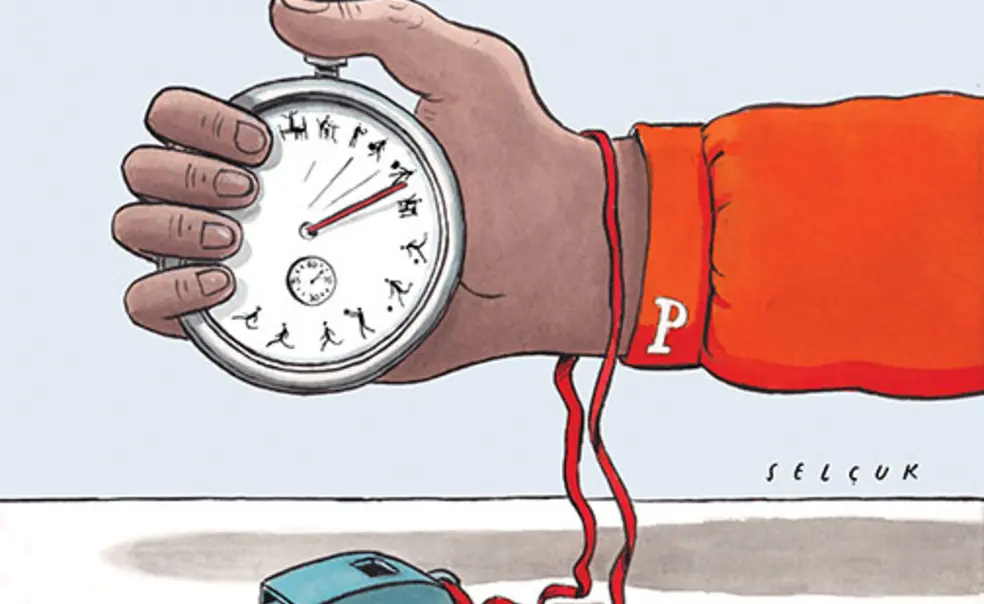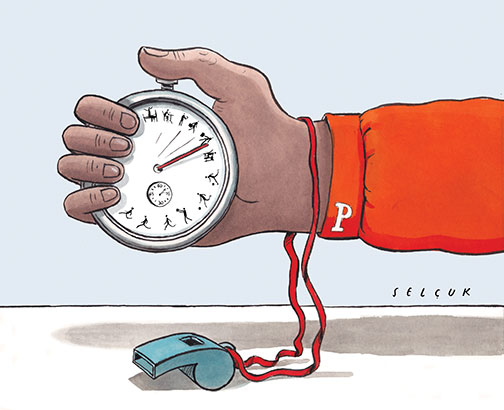Extra Point: Faster, Higher, Stronger, Healthier: Expanding the Boundaries of Training
Are you getting enough sleep? Did you eat a good breakfast this morning? Don’t you think it would be a good idea to put down the phone for a while?
Princeton students expect to hear those questions from their parents. If they’re varsity athletes, they may be hearing them from their coaches, too.
It’s not that the coaches are out to nag — far from it. The demands of Princeton pull student-athletes in many directions, from problem sets to parties to extra work in the weight room, and coaches want to help students balance those competing demands. In the words of Peter Farrell, longtime women’s track and cross country coach and a stickler for healthy sleep habits, “Coaches who come to Princeton have to realize that you’re not coaching in a vacuum.”
Coaches spend more hours with their student-athletes than nearly any professor or adviser does, and they use parts of that time in ways that one might not expect. Veteran women’s swimming coach Susan Teeter, for example, designates one road trip per year as the “unplugged” trip: no laptops, no texting, no headphones on the bus. Some of her hyper-connected Princeton students seem to look forward to it. “When you put those restrictions on, they actually enjoy it,” she said.
Teeter also takes a scientific approach to team dynamics. Each swimmer or diver on her team completes a standardized survey to determine the athlete’s “behavioral style.” The team discusses the results and posts them in the locker room. The program, Teeter said, aims to improve the way that teammates and coaches communicate and deal with conflict — skills that she hopes the athletes can carry with them in their lives after college.
Field hockey coach Kristen Holmes-Winn, who studied psychology in graduate school, applies a similarly academic approach to promoting individual growth. She has developed a curriculum to help her players “understand what performance is and manage the things that can get in the way.”
Each player creates a tailored plan for the year and meets regularly with her “performance coach” (Holmes-Winn or one of her assistants). The students benefit from thinking critically about what they value; Princeton students are talented, hard-working, and ambitious, but they’re not immune from going through the motions, Holmes-Winn said, both on the field and in their daily lives. The idea is to make sure that a student’s behavior — everything from nutrition to time spent on social media — aligns with what the student values. Over time, the performance plan “just becomes who you are,” Holmes-Winn said.
Unplugged bus trips and earlier bedtimes may not necessarily translate into victories. But by widening the boundaries of training, the coaches are ensuring that, win or lose, their athletes’ time is well spent.














No responses yet